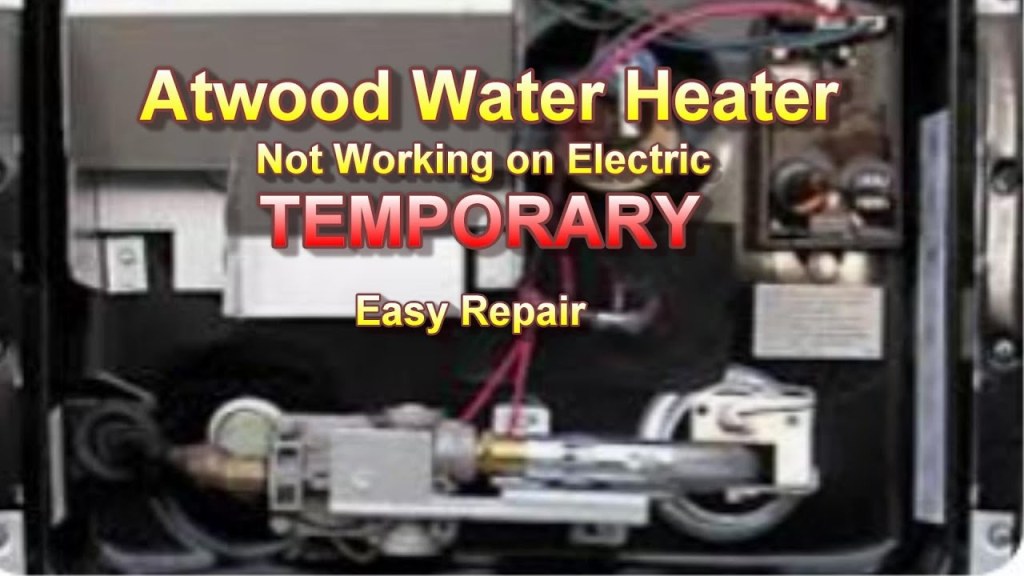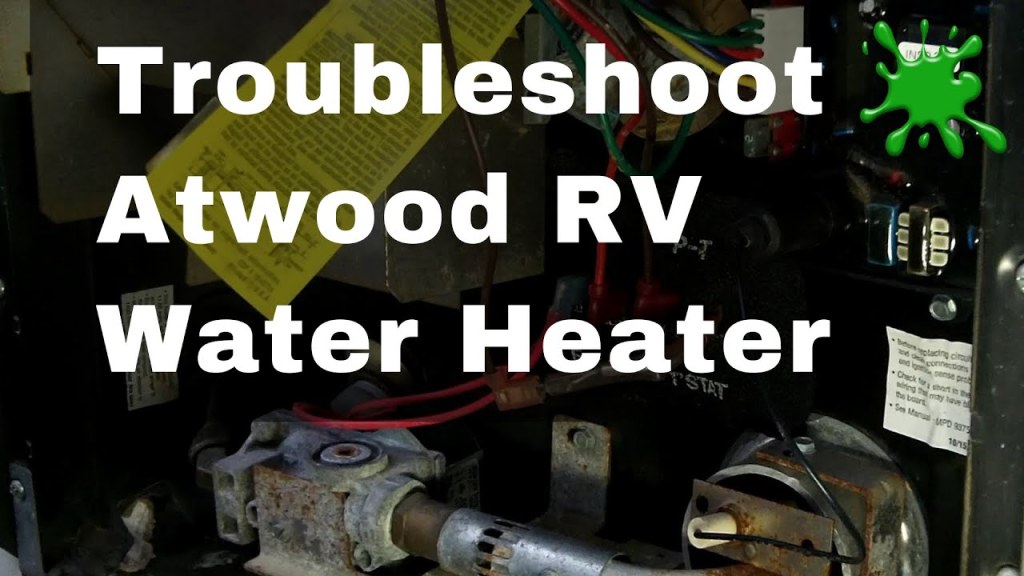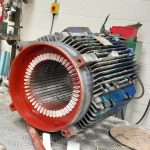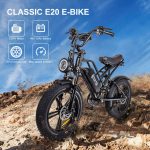Troubleshooting Guide: Fix Your Atwood RV Water Heater Not Working On Electric With Our Proven CTA Solution!
Atwood RV Water Heater Not Working on Electric
Introduction
Dear Smart Readers,
2 Picture Gallery: Troubleshooting Guide: Fix Your Atwood RV Water Heater Not Working On Electric With Our Proven CTA Solution!
Welcome to this informative article on the topic of Atwood RV water heater not working on electric. In this article, we will explore the reasons behind this issue and provide possible solutions to help you troubleshoot and fix the problem. If you own an RV and rely on an electric water heater, this article is a must-read for you. Let’s dive in and find out why your Atwood RV water heater may not be working on electric.
Overview of Atwood RV Water Heater

Image Source: ytimg.com
Before we delve into the issue of the water heater not working on electric, let’s take a moment to understand the Atwood RV water heater itself. Atwood is a well-known brand in the RV industry, and their water heaters are widely used by RV owners. These water heaters are designed to provide hot water for various purposes, such as showers, dishwashing, and general cleaning. They are powered by either propane or electricity, giving RV owners flexibility in choosing their preferred energy source.
Now that we have a basic understanding of the Atwood RV water heater, let’s move on to the main issue at hand – why is it not working on electric?
What Causes Atwood RV Water Heater Not Working on Electric?

Image Source: ytimg.com
There are several potential reasons why your Atwood RV water heater may not be working on electric. Here are some possible causes:
Tripped Breaker: 🚧
One common reason for the electric water heater not working is a tripped breaker. Check your RV’s electrical panel and look for any tripped breakers. If you find any, reset them and see if that resolves the issue.
Faulty Heating Element: 🚧
The heating element is a crucial component of an electric water heater. Over time, it can wear out or become faulty, resulting in the heater not producing hot water. Consider checking and replacing the heating element if necessary.
Improper Wiring: 🚧
Incorrect wiring can prevent the electric water heater from functioning properly. Ensure that all the connections are secure and correctly wired. If you are unsure about the wiring, it is recommended to consult a professional.
Thermostat Issues: 🚧
A malfunctioning thermostat can also be the culprit behind the water heater not working on electric. Check the thermostat settings and make sure it is set to the desired temperature. If necessary, replace the thermostat.
Power Supply Problems: 🚧
Insufficient power supply or fluctuations in voltage can affect the performance of an electric water heater. Verify that your RV is receiving adequate power and consider using a surge protector to protect the water heater from voltage spikes.
Defective Control Board: 🚧
In some cases, a faulty control board can be the cause of the electric water heater not working. If you have ruled out other potential causes and the issue persists, it may be necessary to replace the control board.
Other Factors: 🚧
There are other factors that may contribute to the malfunctioning of an electric water heater, such as sediment buildup, water pressure issues, or a faulty thermostat sensor. It is essential to thoroughly inspect and troubleshoot these components to identify the root cause of the problem.
Advantages and Disadvantages of Atwood RV Water Heater Not Working on Electric
Advantages:
1. Cost-saving: When the electric water heater is not working, you can switch to using propane as an alternative. Propane is often more cost-effective than electricity.
2. Energy independence: Having both propane and electric options for your water heater allows you to choose the energy source that is readily available or more convenient for your RV lifestyle.
3. Backup option: If one power source fails, you have the backup option to switch to the other, ensuring that you always have a working water heater.
4. Versatility: The ability to switch between propane and electric power sources provides flexibility for RV owners, especially in different camping or RV park scenarios.
5. Quick heating: Propane water heaters generally heat water faster than electric ones, ensuring you have hot water whenever you need it.
Disadvantages:
1. Limited electric-only operation: If the electric water heater is not working, you may be limited to using propane until the issue is resolved.
2. Potential repair costs: Fixing the electric water heater can involve expenses, especially if it requires replacing components or seeking professional help.
3. Inconvenience: Not having a properly working electric water heater can be inconvenient, especially if you rely on it for daily activities such as showers and dishwashing.
4. Dependence on propane availability: If you run out of propane or cannot refill it promptly, you may face difficulties in having hot water until the supply is replenished.
5. Maintenance requirements: Both propane and electric water heaters require regular maintenance to ensure optimal performance and longevity.
Frequently Asked Questions (FAQ)
1. Q: How do I know if my Atwood RV water heater is electric or propane-powered?
A: To determine the power source of your Atwood RV water heater, check the exterior of the unit for a switch or control panel indicating the energy source. You can also consult the owner’s manual or contact Atwood customer support for assistance.
2. Q: Can I use the RV water heater while driving?
A: It is generally not recommended to use the RV water heater while driving to ensure safety. The water heater should be turned off and properly secured during transit.
3. Q: How often should I flush my Atwood RV water heater?
A: Flushing your Atwood RV water heater at least once a year is recommended to remove any sediment or mineral buildup. This helps maintain its efficiency and prolong its lifespan.
4. Q: Should I repair the electric water heater myself or hire a professional?
A: If you have experience and knowledge in handling electrical components, you can attempt to troubleshoot and repair the electric water heater yourself. However, if you are unsure or uncomfortable with the process, it is advisable to seek professional assistance to avoid any risks or further damage.
5. Q: Can I convert my electric water heater to run on propane?
A: Converting an electric water heater to run on propane is possible in some cases. However, it requires specific conversion kits and professional expertise to ensure proper installation and safety. It is recommended to consult a professional before attempting to convert your water heater.
Conclusion
In conclusion, a non-functioning Atwood RV water heater on electric can be a frustrating issue for any RV owner. By understanding the possible causes and following the troubleshooting steps mentioned in this article, you can identify and resolve the problem effectively. Remember to prioritize safety and consider seeking professional help if needed. Enjoy hot showers and a reliable water heating system during your RV adventures!
Final Remarks
Dear Smart Readers,
Thank you for taking the time to read this comprehensive article on Atwood RV water heater not working on electric. We hope you found the information valuable and informative. It is essential to prioritize regular maintenance and address any issues promptly to ensure the optimal performance of your RV water heater. If you have any further questions or need additional assistance, feel free to reach out to Atwood customer support or consult a professional. Safe travels and enjoy your RVing experiences!
This post topic: Electric



